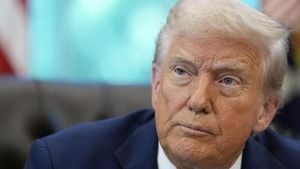The assassination of Charlie Kirk, the 31-year-old founder of Turning Point USA and a prominent conservative activist, has set off a chain reaction across the United States, exposing deep divisions over speech, civility, and the boundaries of public discourse. Kirk was shot and killed on September 10, 2025, during a debate event at Utah Valley University, an act that has sparked not only grief and outrage but also a fierce debate over how Americans respond to the deaths of polarizing public figures.
In the days that followed, a wave of firings, suspensions, and public condemnations swept through schools, government agencies, corporations, and even the entertainment industry. At the same time, civil liberties groups and free speech advocates have raised alarms about the risks of chilling expression and infringing on First Amendment rights. The controversy, as reported by RealFreedomTalk, The Guardian, and other outlets, reveals just how fraught the intersection of politics, social media, and employment has become in today’s America.
Nowhere have the tensions been more visible than in Tucson, Arizona. There, FreedomTalk Magazine publicly called for accountability from Mayor Regina Romero and the Tucson City Council after inflammatory social media posts by a city employee and a council member in the wake of Kirk’s assassination. Benny Gomez, a staffer for Tucson’s Ward 1, posted on social media: “Charlie Kirk was a racist, xenophobic, transphobic, islamophobic, sexist, white nationalist mouthpiece who made millions of dollars inciting hatred in this country… I extend absolutely no empathy for people like that.” Critics, including Councilmember Paul Cunningham, quickly rebuked the tone. “It is inappropriate for an elected official to celebrate the murder of anyone,” Cunningham stated. Meanwhile, Councilmember Lane Santa Cruz removed her own Instagram post about Kirk after public backlash, later clarifying that it was “taken out of context” and that she “unequivocally denounces political violence.” Mayor Regina Romero condemned gun violence in general but stopped short of commenting on whether city staff would face discipline for their remarks.
FreedomTalk’s concerns went beyond individual posts. The magazine highlighted the simultaneous recruitment efforts of the Brown Berets Tucson Unit, whose flyers called them a “community military” prepared to “directly confront” perceived enemies. According to FreedomTalk, such language, combined with incendiary rhetoric from public officials, raises significant public safety concerns. Nationally, Brown Beret chapters have taken on armed “security” roles at protests, further heightening anxieties about the normalization of political violence. FreedomTalk demanded public censure for any official appearing to celebrate political violence, a joint statement from city leaders unequivocally denouncing political assassination, and a public threat assessment of Brown Beret activities. As a spokesperson put it, “When City Hall flirts with rhetoric that dehumanizes political opponents, it plays with fire. Tucson leaders have a duty to cool tensions—not add fuel to the blaze.”
The fallout has not been limited to Arizona. Across the country, dozens of individuals have been fired, suspended, or placed on administrative leave for social media posts about Kirk and his assassination. According to The Guardian, the crackdown has affected government workers, educators, media personalities, healthcare workers, and employees in a wide range of industries. The U.S. Secret Service placed an employee on leave after a Facebook post criticizing Kirk, while FEMA and the Coast Guard also launched investigations into staff accused of making inappropriate remarks. The Department of War, as reported by USA TODAY, fired a Marine for a social media post that called Kirk a “racist man” who’d been “popped.”
In the world of media and entertainment, the consequences have been just as swift. ABC suspended Jimmy Kimmel’s late-night show after he commented on the political exploitation of Kirk’s murder, with FCC chair Brendan Carr warning of further action if networks failed to respond. MSNBC fired senior political analyst Matthew Dowd for suggesting that Kirk’s own rhetoric may have contributed to his fate. Dowd later wrote, “The Right Wing media mob ginned up, went after me on a plethora of platforms, and MSNBC reacted to that mob.” Even bestselling author Stephen King faced backlash for a negative post about Kirk, which he ultimately deleted and apologized for. The message from employers and regulators was clear: any suggestion of celebrating or excusing political violence would not be tolerated.
The education sector has been particularly hard hit. The Massachusetts Teachers Association (MTA) urged districts not to discipline educators for controversial comments about Kirk, emphasizing due process and cautioning against “validating accusations by extremists.” Still, at least three districts in Massachusetts placed teachers on leave, and similar actions were reported in Rhode Island, South Carolina, Texas, Mississippi, and Florida. According to the Texas Tribune, the Texas Education Agency was investigating about 180 complaints against teachers accused of posting inappropriate remarks about Kirk’s death. The American Association of University Professors condemned the rash of disciplinary actions, writing, “The AAUP notes with great alarm the rash of recent administrative actions to discipline faculty, staff, and student speech in the aftermath of the murder of Charlie Kirk.”
Elsewhere, the crackdown extended to airlines, healthcare, and private companies. American Airlines and United Airlines both removed pilots from service for allegedly celebrating Kirk’s death, with Transportation Secretary Sean Duffy declaring, “We heal as a country when we send the message that glorifying political violence is COMPLETELY UNACCEPTABLE!” The University of Miami’s health system fired an employee for “unacceptable public commentary,” while a Massachusetts biomedical research center dismissed a staffer for a “deeply offensive” post. Even sports teams and law firms were not immune: the Carolina Panthers and Nasdaq both fired employees over social media remarks, and Perkins Coie, a prominent law firm, let go of a lawyer who posted critically about Kirk after his death.
The federal government signaled its own hard line. On September 11, U.S. Deputy Secretary of State Christopher Landau warned that the government might “undertake appropriate action” against foreigners found to be “praising, rationalizing, or making light” of Kirk’s death. Secretary of State Marco Rubio later announced that “visa revocations are under way” for visa holders who were “cheering on the public assassination of a political figure.”
All of this has unfolded as activists on both sides of the political spectrum debate the meaning of free speech in an era of intense polarization. Supporters of disciplinary action argue that celebrating or excusing political violence is beyond the pale and must be met with consequences, especially for those in positions of public trust. Critics, including civil liberties groups and teachers’ unions, warn that the rush to punish controversial speech—however distasteful—risks undermining the very freedoms that define American democracy.
Charlie Kirk’s death has become a flashpoint for a broader struggle over the limits of dissent, the responsibilities of public figures, and the dangers of letting political passions spiral into violence. As the nation grapples with these questions, the consequences for individuals, institutions, and the social fabric itself are still unfolding—and the debate shows no sign of cooling down.




